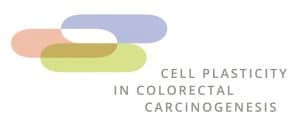Colorectal cancer (CRC) is among the major death-causing cancers worldwide. Exploiting cellular memory processes of cultivated tumor endothelial cells (TEC), we identified SPARCL1 as a marker of tumor microenvironment (TME)-dependent plasticity of TEC in CRC. In tissues, SPARCL1 was highly expressed in mature, quiescent vessels in normal colon and CRC with a Th1-TME but down-regulated in CRC with non-Th1-TME and worse prognosis. In culture, SPARCL1 expression was induced in endothelial cells after confluence was reached and was positively related with cell quiescence and inversely with cell proliferation. In agreement with the latter ectopically expressed SPARCL1 inhibited endothelial cell proliferation and the purified recombinant protein paracrinely inhibited proliferation, migration and sprouting of endothelial cells and proliferation of CRC tumor cells. These results indicated that SPARCL1 may regulate vessel maturation and in addition may act as an endothelial cell-secreted antagonist of tumor growth in CRC with a Th1-like TME (associated with improved prognosis). This led to the hypothesis that specific TME-induced phenotypes of TEC may actively counteract tumor development. Based on these results the main research questions of the planned project are to investigate the role and underlying mechanisms of SPARCL1 as a regulatory molecule of vessel homeostasis and vascular-derived antagonist of CRC progression. The project will deliver new insights into the role of TME-associated blood vessel plasticity on CRC tumorigenesis with the long-term objective to exploit these mechanisms for the development of a SPARCL1-based treatment approach to suppress development of metastases in CRC patients.
In the lab of Prof. Michael Stürzl Dr. Clara Tenkerian is working on this project.
Publications in the course of this funding:
Langer V, Vivi E Regensburger D, Winkler TH, Waldner MJ, Rath T, Schmid B, Skottke L, Lee S, Jeon NL, Wohlfahrt T, Kramer V, Tripal P, Schumann M, Kersting S, Handtrack C, Geppert CI, Suchowski K, Adams RH, Becker C, Ramming A, Naschberger E, Britzen-Laurent N, Stürzl M:
IFN-y drives inflammatory bowel disease pathogenesis through VE-cadherin-directed vascular barrier disruption.
J Clin Invest. 2019 Sep 30. pii: 124884
Full F, van Gent M, Sparrer KMJ, Chiang C, Zurenski MA, Scherer M, Brockmeyer NH, Heinzerling L, Stürzl M, Korn K, Stamminger T, Ensser A, Gack MU.:
Centrosomal protein TRIM43 restricts herpesvirus infection by regulating nuclear lamina integrity.
Nat Microbiol. 2019 Jan;4(1):164-176.
Wohlfahrt T, Rauber S, Uebe S, Luber M, Soare A, Ekici A, Weber S, Matei AE, Chen CW, Maier C, Karouzakis E, Kiener HP, Pachera E, Dees C, Beyer C, Daniel C, Gelse K, Kremer AE, Naschberger E, Stürzl M, Butter F, Sticherling M, Finotto S, Kreuter A, Kaplan MH, Jüngel A, Gay S, Nutt SL, Boykin DW, Poon GMK, Distler O, Schett G, Distler JHW, Ramming A.
PU.1 controls fibroblast polarization and tissue fibrosis.
Nature. 2019 Feb;566(7744):344-349.
Bardenbacher M, Ruder B, Britzen-Laurent N, Schmid B, Waldner M, Naschberger E, Scharl M, Müller W, Günther C, Becker C, Stürzl M*, Tripal P: Permeability analyses and three-dimensional imaging of interferon gamma-induced barrier disintegration in intestinal organoids
Stem Cell Res. 2019 Feb 7;35:101383. *corresponding author
Bengs S, Becker E, Busenhart P, Spalinger MR, Raselli T, Kasper S, Lang S, Atrott K, Mamie C, Vavricka SR, von Boehmer L, Knuth A, Tuomisto A, Mäkinen MJ, Hruz P, Turina M, Rickenbacher A, Petrowsky H, Weber A, Frei P, Halama M, Jenkins G, Sheppard D, Croner RS, Christoph J, Britzen-Laurent N, Naschberger E, Schellerer V, Stürzl M, Fried M, Rogler G, Scharl M: ß6-Integrin serves as a novel serum tumor marker for colorectal carcinoma
Int J Cancer. 2019 Jan 17. [Epub ahead of print]
Schellerer VS, Langheinrich MC, Zver V, Grützmann R, Stürzl M, Gefeller O, Naschberger E, Merkel S: Soluble intercellular adhesion molecule-1 is a prognostic marker in colorectal carcinoma.
Int J Colorectal Dis. 2018 Nov 23.
Ellmann S, Langer V, Britzen-Laurent N, Hildner K, Huber C, Tripal P, Seyler L, Waldner M, Uder M, Stürzl M, Bäuerle T: Application of machine learning algorithms for multiparametric MRI-based evaluation of murine colitis.
PLoS One. 2018 Oct 26; 13(10):e0206576
Unterer B, Wiesmann V, Gunasekaran M, Sticht H, Tenkerian C, Behrens J, Leone M, Engel FB, Britzen-Laurent N, Naschberger E, Wittenberg T, Stürzl M: IFN-γ-response mediator GBP-1 represses human cell proliferation by inhibiting the Hippo signaling transcription factor TEAD.
Biochem J. 2018 Aug 17. pii: BCJ20180123.
Naschberger, E., et al.: Isolation of Human Endothelial Cells from Normal Colon and Colorectal Carcinoma – An Improved Protocol
J Vis Exp 2018 Apr 4;(134)
Gründner J, Prokosch HU, Stürzl M, Croner R, Christoph J, Toddenroth D: Predicting Clinical Outcomes in Colorectal Cancer Using Machine Learning.
IOS Press. 2018 Vol.247;101-105
Naschberger E, et al.: Processing and Secretion of Guanylate Binding Protein-1 depend on Inflammatory Caspase Activity.
J Cell Mol Med. 2017 Sep;21(9):1954-1966. doi: 10.1111/jcmm.13116. Epub 2017 Mar 8.
Naschberger E, et al.: Matricellular protein SPARCL1 regulates tumor microenvironment-dependent endothelial cell heterogeneity in colorectal carcinoma.
J Clin Invest. 2016 Nov 1;126(11):4187-4204.

